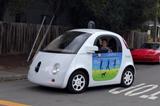Half (50%) of Britons are concerned about future driver-assistance technologies taking too much control away from the driver. This compares with just one in five (20%) who are unconcerned.
Around two-thirds of car-owning households now have vehicles with at least one driver-assist feature including things such as adaptive cruise control, lane departure detection, automatic emergency braking and automatic windscreen wipers.
However, the data from an Ipsos MORI survey for the RAC Foundation suggests that there is a limit to the level of automation people are willing to accept in the vehicles on our roads.
This is underlined by the relatively small proportion of the British public who believe we should be working towards fully-autonomous cars (24% v 42% who believe we should not).
The strongest support for a greater reliance on technology comes from drivers who already use it.
Nearly half (47%) of people who have cars with driver-assist features say they feel safer on the roads as a result, with only one in five (20%) disagreeing.
The results of the survey are being presented today (Wednesday) at the Driver Ahead conference – a joint RAC Foundation and IAM RoadSmart event looking at the future of vehicle automation and driver training.
Steve Gooding, director of the RAC Foundation, said: “The proof of the pudding appears to be in the eating. It is through personal experience of the latest technology that we come to trust in it and appreciate what it can do for us.
“But in the twilight world between our cars requiring the constant attention of a driver and a possible future where there is no role for a driver at all we need to ensure that the safety critical role of the driver is still built-in to automotive design thinking.
“Driving is a task that for the foreseeable future will still require skill, concentration and judgement, so alongside the development of increasingly sophisticated and automated driver-assistance technology car manufacturers need also to be thinking of creative ways of keeping motorists alert and engaged in the task in hand.â€
Ben Page, chief executive of Ipsos MORI, said: “The research shows that cars remain as important as ever to the public, and they are interested in new technology – but few are comfortable with completely driverless cars, and fear losing control.
“In terms of new technologies available now, there is real unmet demand for automatic emergency braking – but it will need to be provided at a price consumers feel they can afford.â€








